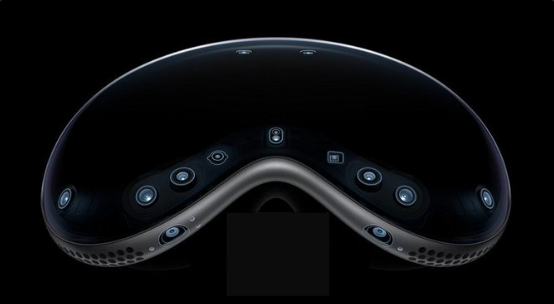Cost and Market Viability: The headset was expected to feature cutting-edge micro OLED displays, making it difficult to achieve a competitive price point below $1,000. Meta’s Reality Labs, which was developing the headset, has already faced significant financial losses, prompting the company to reconsider the project’s viabilityTechRadar
Meta has discontinued its plans to develop a high-end mixed reality headset that was intended to compete directly with Apple’s Vision Pro, according to a report from The Information. The decision came after a recent product review meeting led by Meta CEO Mark Zuckerberg, where the company directed its employees to stop work on the project.
Meta reportedly Cancels Plans for a Higher-End Quest-based Spatial Computing Headset that was aimed to compete with Vision Pro https://t.co/0M7GqzaRaV pic.twitter.com/gEBBpXyjHJ
— Patently Apple (@PatentlyApple) August 24, 2024
The now-canceled headset was initially planned for a 2027 release and was expected to feature high-resolution micro OLED displays, similar to those used in Apple’s Vision Pro. Meta aimed to offer this device at a price point below $1,000. However, achieving such a low cost was deemed unfeasible due to the expensive nature of the high-resolution displays required for the headset.
Despite this setback, Meta continues to work on the Quest 4, a successor to its existing Quest 3 headset. The Quest 4 is expected to be released in 2026, with a likely price tag similar to the Quest 3, which currently sells for $500. Alongside its hardware efforts, Meta is shifting its focus toward software development. Earlier this year, the company introduced the Horizon OS platform, designed to support third-party hardware manufacturers.
JUST IN: $META cancels plans for a high-end mixed reality headset that would compete with $AAPL Vision Pro pic.twitter.com/toHeIvlBGb
— LuxAlgo (@LuxAlgo) August 23, 2024
Meta initially hoped that the launch of Apple’s Vision Pro would rejuvenate the AR/VR market, providing validation for Zuckerberg’s substantial investments in augmented and virtual reality technologies. However, consumer interest in the Vision Pro has declined since its debut, with fewer customers seeking in-store demonstrations and overall enthusiasm waning just a month after launch.
Following its initial excitement, Apple faced challenges in maintaining consumer interest. The company reduced its Vision Pro shipment forecasts in April and is now projected to sell fewer than 500,000 units in 2024. Due to these lower-than-expected sales figures, Apple has paused development on a second-generation high-cost Vision Pro model. Instead, the company is focusing on developing a more affordable version with fewer features, aiming for a price closer to that of its high-end iPhones.
Meta reportedly cancels plans for high-end mixed-reality headset https://t.co/Is97dVY8Dt pic.twitter.com/WA7OtFKBKt
— The Globe and Mail (@globeandmail) August 23, 2024
Meta’s decision to halt the development of its high-end headset reflects a strategic pivot in response to the evolving AR/VR market landscape. As both Meta and Apple reassess their positions, the future of high-end mixed reality technology remains uncertain, with both companies now exploring more cost-effective solutions to capture consumer interest.
More Inforamtion
- Impact of Apple Vision Pro Sales: Apple’s Vision Pro, priced at around $3,499, has seen limited consumer uptake, with some customers even returning the product. Meta observed these market dynamics and decided that pursuing a similar high-cost product might not be a successful strategy. Instead, Meta appears to be focusing on more affordable mixed reality devices like the upcoming Meta Quest 3S TechRadar
- Strategic Shift: Meta CTO Andrew Bosworth commented that the company regularly evaluates its projects and makes adjustments based on market conditions and strategic priorities. While Meta is stepping back from this particular high-end headset, it remains committed to the broader field of virtual and augmented reality and is exploring other device options TechRadar
Major Points:
- Meta has canceled its plans for a high-end mixed reality headset that was intended to compete with Apple’s Vision Pro, following a product review meeting led by CEO Mark Zuckerberg.
- The canceled headset was expected to launch in 2027 with high-resolution micro OLED displays, but high production costs made it impossible to sell for under $1,000, prompting Meta to discontinue the project.
- Meta is focusing on the development of the Quest 4, a follow-up to the Quest 3, which is anticipated to release in 2026 with a similar price point of around $500.
- The company is also shifting its focus toward software development, including its Horizon OS platform for third-party hardware manufacturers, rather than investing in expensive hardware.
- Apple’s Vision Pro has faced declining consumer interest, leading Apple to scale back its plans for a second-generation model and focus on creating a more affordable version instead.
James Kravitz – Reprinted with permission of Whatfinger News



